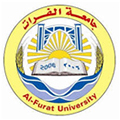آخر الأخبار
التمثيل الدبلوماسي بين سوريا ولبنان وفقا لقواعد القانون الدولي العام
2010, Volume 1, issue 3,pp 142-169| Cite as
Diplomatic Exchange between Syria and Lebanon According To Rules Of Common International Law
| authors |
A. Milhem, G. Al-Yasin |
| Abstract |
Security Council is considered the major body of the UN. It shoulders main missions, by which manifests the importance of an international law that organizes the affairs of the international community and the international relations. The most important mission of Security Council is to maintain international peace and security. Tension, unsettlement and military conflicts often are reasons to break out World Wars. They affect negatively in the peace of world and distract Mankind from its essential aims of progress, development and mutual cooperation. Numerous mechanisms have been available for SC to help fulfilling its goals. Simultaneously, the UN convention requires that the Security Council uses those mechanisms according to the International Law rules agreed on by member states of the international organization. Due to the changes the world has witnessed since the dominance of one pole over the global level, SC has been used in purposes contrary to what it is supposed to. It has been contradicting principles firmly established in the International Law, such as sovereignty, non-intervention, and peaceful solution of disputes. All that is an execution of national policies of some member states in the SC. Among the countries that have been victims of the misuse of SC's missions and competence are Syria and Lebanon. A number of resolutions has been issued, intervening in their internal affairs and disparaging their national sovereignty. The SC resolutions include that no. 1680, made on session 5440, held on 17.5 2006, by which Syria and Lebanon have been encouraged to establish diplomatic ties. It contradicts the simplest and most important principles of diplomatic procedures, which are: the mutual consent, and the desire resulting from the national decision and the mutual interest.
Key words : Syria , Lebanon , prlateral diplomatic change |
| الكاتب |
علي ملحم, غسان الياسين |
| الملخص |
يُعد مجلس الأمن الدولي الجهاز الرئيس في منظمة الأمم المتحدة، لذا فإنه يتولى القيام بمهام رئيسة، من خلالها تتجلى أهمية وجود قانون دولي ينظم شؤون الأسرة الدولية، وعلاقات الدول مع بعضها البعض. وأهم هذه المهام التي يضطلع بها مجلس الأمن، حفظ السلم والأمن الدوليين، إذ غالباً ما كان التوتر وعدم الاستقرار، أو حتى نشوب النزاعات المسلحة، سبباً في اندلاع حروب عالمية تؤثر سلباً في استقرار المجتمع الدولي، وتؤدي إلى إشغاله عن الأهداف الرئيسة، التي تسعى البشرية وراء تحقيقها في التنمية والازدهار والتعاون المشترك.
وقد وُضعت آليات متعدّدة بيد مجلس الأمن لمساعدته في تحقيق أهدافه المنشودة، ولكن في نفس الوقت فرض عليه ميثاق الأمم المتحدة أن يستخدمها بالشكل الذي يتناسب مع قواعد القانون الدولي المجمع عليها من الدول الأعضاء في المنظمة الدولية. لكن مع التغيّرات التي شهدها العالم بعد امتلاك القطب الواحد زمام المبادرة على الصعيد الدولي، بدأ المجلس يُستخدم في غير الغايات التي وجد لأجلها، فبدأ يخالف مبادئ راسخة وأساسيّة في القانون الدولي، كمبدأ السيادة، ومبدأ عدم التدخل، ومبدأ حل المنازعات بالطرق السلمية؛ تنفيذاً لسياسات وطنية لبعض الدول الأعضاء في المجلس.
وكان من بين الدول التي ذهبت ضحّية هذا الاستخدام الخاطئ لمهام واختصاصات مجلس الأمن الدولي، كل من سوريا ولبنان، فصدر بحقهما مجموعة من القرارات التي تتدخل في شؤونهما الداخلية، وتنتقص من سيادتهما الوطنية، وكان من جملة هذه القرارات، قرار مجلس الأمن 1680 المتخذ في جلسته 5440 المعقودة في 17 أيار 2006، والذي يشجع من خلاله كل من سوريا ولبنان على إقامة علاقات دبلوماسية بينهما، مخالفاً أبسط مبادئ العمل الدبلوماسي وأهمها، وهو مبدأ الرضا المتبادل والرغبة النابعة من القرار الوطني والمصلحة المشتركة.
كلمات مفتاحية : سوريا ولبنان، تبادل دبلوماسي |














